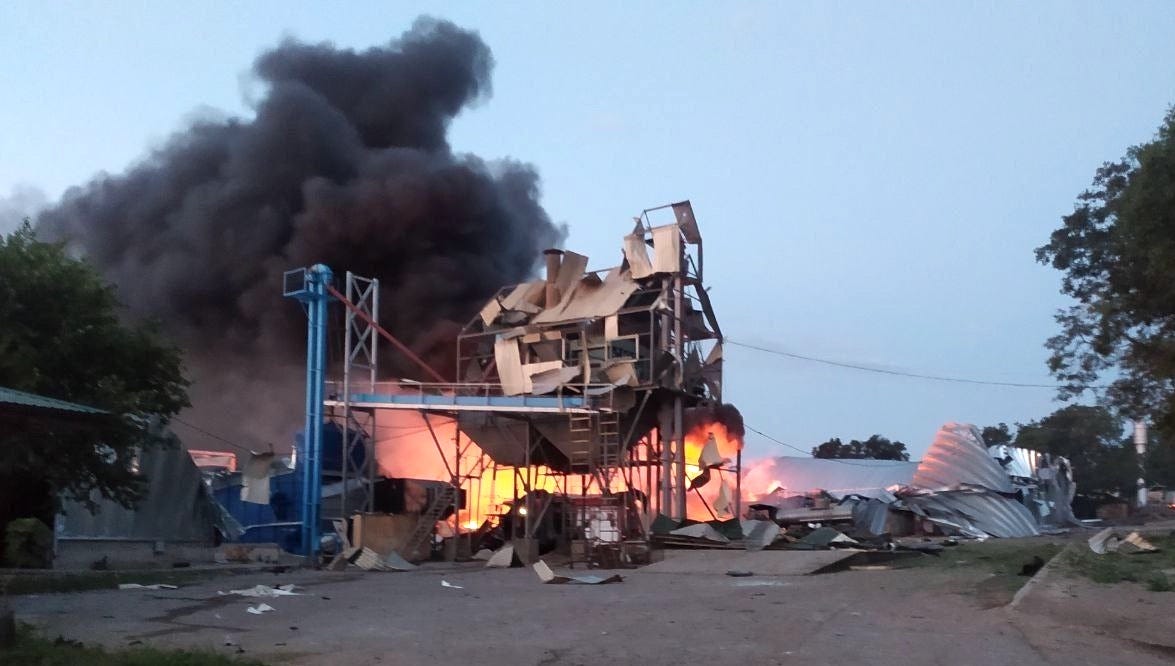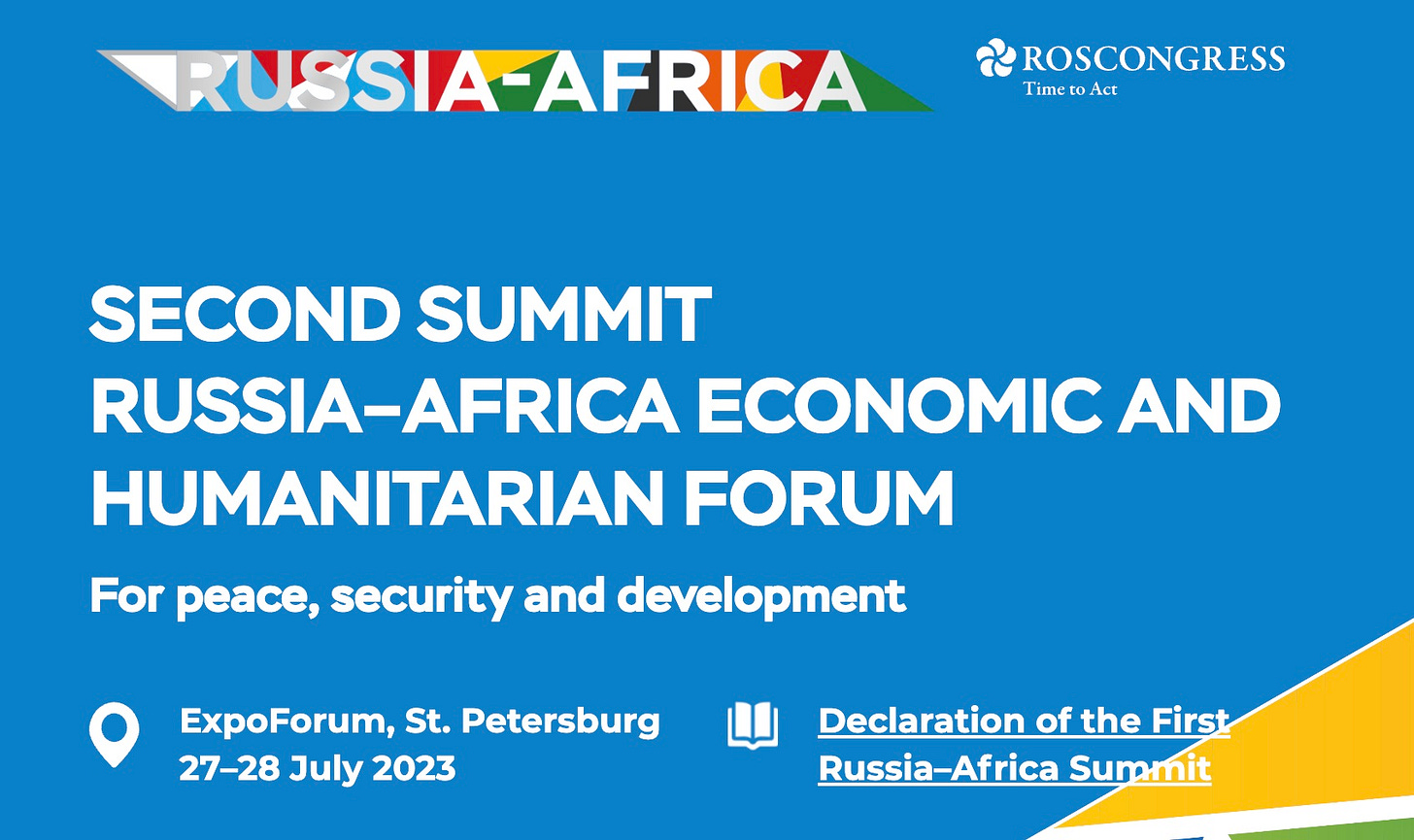Yes, along with climate change and eroding biological diversity and the like, brutal dictatorial behavior has to be resisted if your goal is creating a cooler human relationship with the planet and each other. That’s why I continue to track Putin’s war.
UPDATE July 27 - Russian state media reported that Vladimir Putin pledged to provide thousands of tons of free grain to African nations at the Russia-Africa Summit in St. Petersburg. Alexandra Sharp of Foreign Policy assessed the developments and predicted it’ll be tough for Russia to gain support in Africa despite the grain offer.
Original post - Never letting a self-generated global crisis go to waste, Russia is aiming to boost African hegemony (and make money) by filling the grain gap created by Vladimir Putin’s sustained occupation of, and attacks on, Ukraine. This is revealed in great reporting by a Financial Times team:
Russia is pushing a plan to supply Africa with grain and cut Ukraine out of global markets after withdrawing from a UN-backed deal this week, according to three people familiar with the matter. President Vladimir Putin has proposed a replacement initiative whereby Qatar would pay Moscow to ship its grain to Turkey, which would distribute the crop to “countries in need”, the people said….
Russia first floated the idea of supplying its grain to Africa last year, the people familiar with the matter said, after it briefly pulled out of the Black Sea accord brokered by the UN and Turkey that has allowed 33mn tonnes of Ukrainian grain to be exported. Moscow rejoined the deal a few days later.
The article notes the timing of the move, with a second Russia-Africa summit “on peace, security and development” is taking place in St. Petersburg next week.
At the same time, as CNN is reporting, Russia is pursuing a coordinated approach to cutting Ukraine’s capacity to get this summer’s crops to market, including with fresh bombardments of Odessa’s port infrastructure after announcing it was suspending its participation in an agreement that allowed safe shipments of Ukrainian grain through the Black Sea.

I recommend you explore the reports and other output of the Africa Center for Strategic Studies at the U.S. National Defense University for a wider strategic picture. Here’s a summary:
Russia has arguably expanded its influence in Africa in recent years more than any other external actor. These engagements extend from deepening ties in North Africa, expanding its reach in the Central African Republic and the Sahel, and rekindling Cold War ties in southern Africa. Russia’s approach is distinctive among external actors in that Moscow typically relies on irregular (and frequently extralegal) means to expand its influence—deployment of mercenaries, disinformation, election interference, support for coups, and arms for resources deals, among others. This low-cost, high influence strategy seeks to advance a very different world order than the rules-based, democratic political systems to which most Africans aspire. The outcomes from Russia’s interventions in Africa, therefore, will have far reaching implications for governance norms and security on the continent. Following are a series of Africa Center analyses of Russia’s engagements in Africa.
Click back to earlier Sustain What posts on this aspect of Putin’s atrocities:







